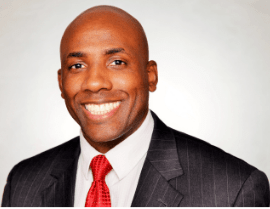Bahamas Health Minister warns against institutional territorialism
NASSAU, The Bahamas – Bahamas Minister of Health Sen. the Hon. Marcus Bethel on Thursday, February 2 warned healthcare professionals and administrators throughout The Bahamas to guard against “institutional territorialism” as it can negatively impact the delivery of healthcare to patients.
Addressing the Healthcare Leadership Summit hosted by the Public Hospitals Authority, Dr. Bethel told healthcare professionals that they must work towards a more efficient integration of healthcare services in The Bahamas, despite the many successes the industry has enjoyed.
He said the only way to ensure this happens is through the continued building of partnerships, which “will continue to be an integral part of our development as a people through the agencies of the economy, education, health and other social institutions.”
Dr. Bethel said a more efficient integration of services will allow for a seamless transition for patient services between community clinics and hospitals. He said this will ensure a timely delivery of services and follow-up care to patients.
“Our greatest challenge, however, is building bridges within our own healthcare sector because of rigid policies and behavior. This is called the ‘Silo Phenomenon’,” Dr. Bethel said.
“The ‘Silo Phenomenon’ represents institutional territorialism (and) adversely impacts our delivery of healthcare and it primarily infects our administrators and managers. Secondarily, it affects doctors, nurses, allied health professionals and support staff and, ultimately, affects the quality of healthcare to the public.” Hence, it is arguably the single greatest hindrance to the delivery of quality healthcare in The Bahamas,” Dr. Bethel added.
Dr. Bethel said the healthcare sector in The Bahamas has benefited enormously from “new and well established” international and regional partnerships in the past, among them USAID, CAREC, WHO and PAHO.
He said at the national level, partnerships with faith-based groups, non-governmental organizations and civic groups such as the AIDS Foundation, Kerzner Group, National Drug Council, Cancer Society, Diabetic Society, Kingdor National Foundation, the Bahamas Heart Association and many others, have had a positive impact on the quality and sustainability of the country’s healthcare initiatives.
“Partnerships are working relationships between human beings and serve the need for collaboration, security, emotional support and the growth and development of people, societies, nations and businesses,” said Minister Bethel.
“These partnerships illustrate how building bridges moulds and strengthens our healthcare system,” Dr. Bethel added.


